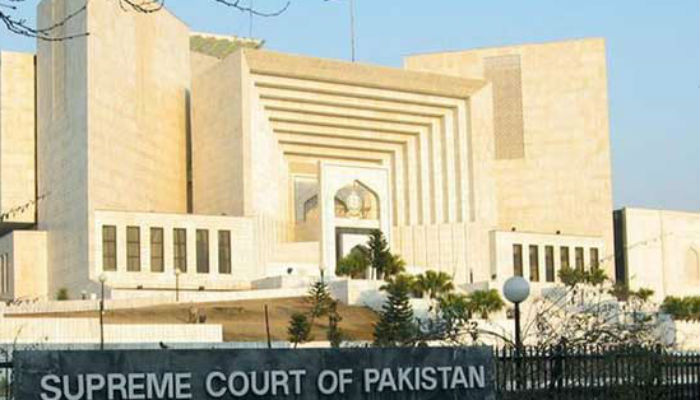Is an independent judiciary not accountable?
Judicial independence does not mean an unobstructed run of the field, writes Mohamad Umer Lakhani
March 15, 2021

Not too long ago, in 2016, a three-member bench of the Supreme Court of Pakistan wrote: “The superior courts of this country are also accountable.”
But then last year on March 3, a five-member bench of the apex court observed, in a detailed judgment, that “the superior courts are anything but accountable”.
The court’s 2016 decision was premised on an audit report submitted by an official of the Islamabad High Court. The report had identified a number of administrative and executive appointments made to the High Court in violation of rules.
One objection raised against the audit report was that the administrative actions of the superior courts could not be called into question under any Constitutional provision.
The Supreme Court, in a moment of great self-reflection, disagreed. It ordered that public officials are accountable and appointments made for the administration of courts cannot flout the law.
The matter rested. But not for too long.
Then last year, a larger bench of the Supreme Court set aside the 2016 verdict, after which the Supreme Court and the high courts are now once again immune from accountability.
The March 3, 2020, decision of the Supreme Court is bewildering.
Unless appointees in the judicial system are working pro bono, why can’t their appointments be questioned, especially if they are receiving their salaries from the public exchequer and the taxpayers' purse?
Judicial independence does not mean an unobstructed run of the field. Instead such independence should allow for introspection to root out internal flaws.
Judicial independence means exercising restraint where bravado is the order of the day. Judicial independence should mean to interpret the Constitution to advance the cause of the law in order to protect the most vulnerable.
Last year’s Supreme Court verdict clearly states that the Constitution is sacrosanct. But then one must ask where in the Constitution does the word “suo motu” action appear? Article 184 (3) gives the Courts broad powers in matters of public importance. Still, the word “suo motu” isn’t mentioned.
Also, the Constitution doesn’t mandate that courts leave a legacy. It mandates that courts protect people’s rights and find the law’s guidance to do it with equity, humility and consciousness.
Last year’s judgment interprets the Constitution by applying the “but for” principle. This principle finds its roots in the law of torts. Ironically, this principle doesn’t find any real support currently in the jurisprudential system.
The 2020 judgement also noted that it is important to maintain the comity of judges and therefore administrative decisions of a judge must not be interfered with. But what if a judge got it wrong? Should we abolish the right of appeals altogether, lest the comity is disturbed?
The law changes and evolves. It is meant to grow with times and circumstances that is why the Constitution is an organic and evolving creature, unless of course there is something inherently wrong with our constitution and we are desperately trying to cover up its flaws.
Letting the Constitution evolve as a truly dynamic set of rules, ever adapting, ever assimilating is true judicial independence and accountability.
Today, the courts in Pakistan have a greater responsibility than they ever did. The legal community, from where judicial appointments are made, is fractured and distant.
Lawyers are in the profession of law now more to contest bar elections than anything else. This means that the responsibility on courts has only multiplied.
The people of Pakistan must regain their lost confidence in the judicial system, which at the moment is top heavy. The superior courts must instigate the change so the lower courts can follow their lead.
Lakhani is a practicing lawyer and resides in Karachi











